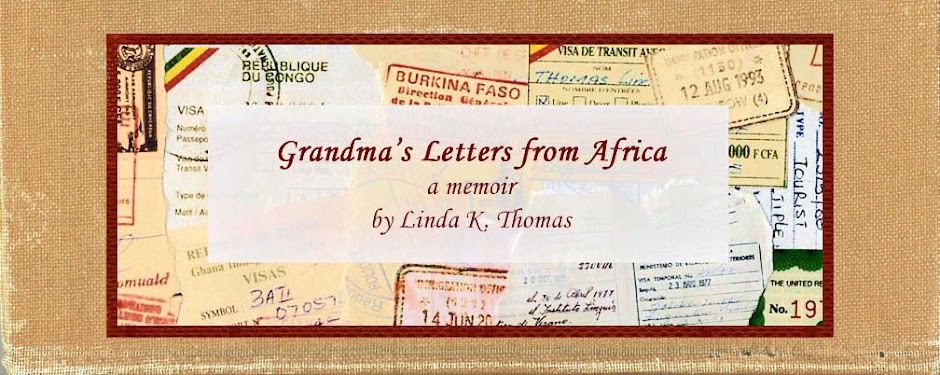At
first, I observed the Maasai from afar—my fellow orientees and I sat on canvas
safari chairs in the shade of giant fig trees and listened to an American anthropologist’s
lectures on the Maasai culture.
During
that phase of orientation, I associated with the Maasai, ever so slightly,
because several men worked as our night guards. (See the photo below; the
head guard, John, wears the suit.) Since they did not speak my language and I
didn’t speak theirs, mostly I nodded politely and kept my distance.
Because
the Maasai needed money, the women asked us to hire them to scrub laundry in
the little stream beside our camp. One day a handful of Maasai women came to
camp with a gift—they danced and sang for us in their unique traditional
way—but I stood back and watched. Only Chrissie danced with them—bless her
heart. Looking back now, I wish I’d followed Chrissie’s example, but I stood
back and remained an observer.
Then
one day our head guard, John, invited some of us to his home for tea. After a
fifteen-minute walk across the desert, we spotted his manyatta, a cluster of
seven or eight huts enclosed within a thick wall of thorn bushes that kept wild
animals out at night. The Maasai kept their goats and cattle inside the wall at
night so manure littered their yard.
John’s
children played in the yard, too, their faces dotted with tenacious flies. They
walked up within inches of me, heads bowed—this was their way of asking me to
bless them by touching their heads. I could no longer stand at a distance.
I
reached out and touched their little heads and gave them their blessing but, looking
back on it, I’m sure I received the bigger blessing.
Maasai women build their homes—squat,
rectangular, dome-shaped huts about six and a half feet tall. They make both
walls and roofs out of sticks covered with sun-dried cow dung and mud.
John led our group of twelve wazungu through
a narrow door about four feet tall.
Dave and I watched the first few people
follow John. When it was our turn, we bent down and stooped inside.
Suddenly blackness enveloped me, and I caught
my breath. Outside, we had stood in intense equatorial sunshine, but when I
ducked through that little door, the sheer darkness shocked me.
Immediately I received another surprise: in
front of me, within about two feet of the doorway, I came face to face with a
wall.
I gasped, jerking backward, ever so slightly,
back toward the light. . . .
All these years later my heart still races
when I relive those moments. I can still feel how startled I was, how
disoriented, when I entered John’s home. I remember the choking, strangling
anxiety, the panic, the need to turn and run away.
I was experiencing culture
shock: “A state of anxious confusion experienced by someone exposed to an alien
or unfamiliar environment,” according to American Heritage Dictionary.
There in that desert in southwestern Kenya, I needed
to learn that God, “is
Lord of the desert. Make that your desert,” writes Chuck Swindoll.
“The most precious object of God's love is His child
in the desert,” Chuck continues.
“If it were possible, you mean more to Him during
this time than at any other time. . . . You are His beloved student taking his
toughest courses. . . . He loves you with an infinite amount of love.
“Jesus walked through the desert first. He felt its heat. He endured its loneliness. He accepted its obscurity. He faced down Satan himself while the desert winds howled. And you can be sure He will never, ever forget or forsake the one who follows Him across the sand.” (From Great Days with The Great Lives, by Charles R. Swindoll)
Thank God for that! I was not alone in my desert!





